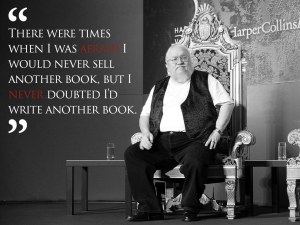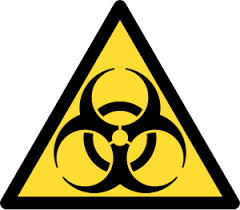 Authors are not really great at social stuff. On top of that, we tend to be horribly insecure about our work, but it’s all we can think of to talk about.
Authors are not really great at social stuff. On top of that, we tend to be horribly insecure about our work, but it’s all we can think of to talk about.
We are thin-skinned and bleed profusely when you cut our work to shreds. Some of us handle that with grace and dignity, and others go ballistic and make an uncomfortable situation worse.
Now we come to a problem affecting a friend who lives far way from me–authors undercutting authors. She has left her writing group and will not be going back because one new member is harsh and unfair in the way they critique this author’s work–under the arrogant pretense of “just telling the truth.”
The new member is published, an indie, and seems to be selling a fair amount of books. She was invited to join a group of authors who are not not yet published, but who all hope to be. Each member is in various stages of courting agents and editors. An editor for a respected mid-sized press has shown interest in my friend’s manuscript. The new member started out friendly enough, but began by making belittling remarks about the way the group had been doing things, implying they were just playing at being authors. Then, suddenly feeling inferior and hoping to be more “legitimate,” the group allowed her to take charge. Things went downhill from there, with the new queen-bee as the center of attention.
Now I don’t know if my friend will ever write again. I do know she won’t join another group, which is sad, because MOST groups are not like that. Yes, they dig deep, and work on structural issues, but they don’t phrase their comments in a deliberately cruel manner. She knew her work wasn’t ready for publication, but she didn’t know it was “crap.”
And it isn’t crap.
I hate that she has put aside the makings of what could someday be a great novel, all because a person she respected as an author belittled her attempts in such a way that she is now afraid to share that most intimate part of her soul–her creativity.
But this is a problem that affects authors of all stations, not just indies and hopefuls. People feel its acceptable to say the most disparaging things, especially if an author has become successful, as if that author’s success negatively affects their own chances. And they seem to to take it beyond criticizing their work–they get personal about it.
Indie authors need to help each other advance, not tear each other down. The world is full of readers, so there is room for everyone, and if we ridicule each other and make disparaging, mocking remarks about the quality of others’ work just because we don’t care for their style of writing, shame on us. There is an ocean of difference between badly crafted work, and work that is written in a style you don’t care for. I read many things written in a style I don’t care for, but if it is well-crafted and written with some attention to the aspects that make a good tale, I will give it a decent review, and I refuse say negative things about the author who wrote it, no matter how popular it may be to do so.
Successful author bashing has become an acceptable topic at parties due in part, I think, to the fact that with the rise of ebooks and Amazon’s eagerness for buyer reviews, any reader can become a critic, regardless of the quality of their “review.” This is both good and bad, because you do sometimes get a real-world view of what readers think of a book. But conversely an illiterate review that gives only one star and just says (in misspelled words) that they hated it and didn’t read the book doesn’t help help anyone.
Trolling and internet bullying has become an addiction for some people, and it’s apparent that their anonymity gives them a sense of power. To be able to destroy a person with a few well-chosen words–they see themselves as king-breakers, and they like that.
Even mega-successful authors like George R.R. Martin deal with an avalanche of poison and angst from trolls–I hope that what he deals with is not typical of what successful authors must endure, although Stephanie Meyer, E.L. James, and J.K. Rowling have all endured this sort of spew. Of course George’s TV series is the source of most of his grief, but still–these people show so little respect for a kind, decent man who sincerely cares about his craft and whose work has provided them with countless hours of entertainment.
 All that aside, NO author, no matter how famous, crafts perfect work that resonates with every reader, every time. We sometimes hit a pure note with one particular piece, but we will spend the rest of our writing lives trying to live up to the potential that piece had, with varying degrees of success. And when we were writing that story, perhaps it didn’t go the way the reader thought it should, and someone had to die.
All that aside, NO author, no matter how famous, crafts perfect work that resonates with every reader, every time. We sometimes hit a pure note with one particular piece, but we will spend the rest of our writing lives trying to live up to the potential that piece had, with varying degrees of success. And when we were writing that story, perhaps it didn’t go the way the reader thought it should, and someone had to die.
That happens all the time, because the READER DOES NOT WRITE THE BOOK. Readers who want to write the book badly enough become authors and DO it, instead of whining about it.
So we authors try to develop a thick skin and continue doing what we do. We keep learning. We keep working on the craft, and we never stop striving to be just a little better with our next short story or novel. And if, when you are in a writing group and another author makes cutting remarks in regard to your writing style, ask yourself why they feel that your style deserves harsh criticism. Don’t feel badly about walking away from that group before it gets to the level that my friend experienced, even if you like a few of the people who remain–because you won’t gain anything by staying around for more humiliation.
 My friend–there will be other groups, and with a little checking around, you will find the one that welcomes you and your work.
My friend–there will be other groups, and with a little checking around, you will find the one that welcomes you and your work.
Or maybe you need to go solo for a while.
That is cold comfort if someone you once respected has trashed your work and humiliated you, I know. But keep learning and keep writing. Rise above the naysayers and don’t let them steal the joy you have in your craft.










Shame on that person, but it’s likely related more to that one person’s personality than the quality of your friend’s work. I, too, joined a local writer’s group. There are some personalities I get along great with and some so-so. One guy, in particular, is always highly critical of my work. He’s a self proclaimed misogynist…and it shows. He says he read my published book and posted a highly critical review on Amazon. I simply don’t share my work with him anymore, unless it is a read for the group. I ignore him.
LikeLike
@SK – we all deal with that in our groups–hopefully just not motivated by personal angst. I feel you are right to reserve who you choose to share with, based on the fact you already know he doesn’t care for your work, so why bother?
LikeLiked by 1 person
While I deeply value a well-written negative review, personal attacks are terrifying and perplexing. What is the reason for doing such a dreadful thing? I think most of us have no idea why personality-bashing goes on.
Here’s hoping your friend finds her own place eventually and returns to her craft. What a sad story.
LikeLike
@Alison–I hope so too. I have sent an email to her, hoping she will pursue the ms, because she had attracted the interest of an editor working with a well-recommended mid-sized press.
LikeLike
Reblogged this on deborahjay and commented:
This is such a powerful piece, relevant to so many authors, particularly those who are less than confident in their own work.
LikeLike
What a sad and yet powerful post – I’ve reblogged it onto my site in the hopes it will speak to many more authors out there, on both sides of this situation.
LikeLike
@Deborah–thank you!
LikeLike
Excellent post! A thorough summation of various excerpts from the journal I’d write if I was the journal-writing type. However, I prefer to save my angst for the fiction I write, and thereby live a more pleasant life through characters who are more real than the supposedly real denizens who purport to surround me with all their mundanity out there on their sleeves for the world to see and despise. Instead of that, all is well both on and between the pages of the craft–a kind of art therapy using linguistic symbolism that assuages my horrors! (I have it on high authority that that is what gets Mr. Martin out of bed in the afternoon.) Never give in! Never retreat! Never delete!
LikeLike
@Stephen–I think you must be right. (but I do delete sometimes.)
LikeLike
Reblogged this on Barrow Blogs and commented:
A cruel lesson to learn.
LikeLike
There is often one member in a group who will try to put other authors down through their own insecurities – but the other cambers usually soften the blows and have positive view. In my classes (I tutor adults) I have a handout on constructive criticism and insist we comply to it.. What’s the point of being cruel? I do hope your friend writes again. We all only improve with practice – even successful author.
LikeLike
I hope so too, Judith. I’ve spoken to her via email.
My group uses the rules for constructive criticism too. I sometimes don’t like how my work is received, but the critiques are fair and aimed at helping produce a better product. THAT kind of sting I can live with.
LikeLike
I’ve learned to smile when someone doesn’t like my work – then I go home and look at the points made. Usually useful . But in the end we have to believe in ourselves. Please tell your friend how we all have empathy with her – and to get writing again!
LikeLike
I do not understand why anyone should attack another’s work. None. It is cruel and juvenile. I wonder if by realization something someone else wrote was good and it makes them feel inadequate. 😦
LikeLike
Hello–it’s nice to meet you–and I suspect that a feeling of being threatened by another person is often behind these sorts of incidents. when writing groups go sour In the group I am in, we use the 5 questions for Beta readers as set down by Orson Scott Card for Writer’s Digest. We never tell a person what they are writing is crap–that is an attack and it is not allowed. And, I can’t see my fellow authors treating anyone that way.
We ask 5 questions when we are reading the ms–and we look for the strengths as well as the weaknesses. Certainly every ms has weaknesses, but even the worst has some redeeming feature, even it it is only a good idea for a plot. The point is, we all start out writing badly crafted stuff, but we don’t realize it until we see it through a reader’s eyes. They point out when I give too much background as is my habit. Some will even tease me for it, but I don’t feel it’s mean-spirited. I feel they respect my efforts the way I respect theirs.
These are the questions we ask:
1. Were you ever bored? Tell me where it got slow.
2. What did you think of the main character(s)?
Of the others?
3. Was there any section where you became confused? What did you have to read twice?
4. Was there any place where the story became unbelievable?
5. What do you think will happen to the characters now?.
LikeLiked by 1 person
Nice to meet you too. 😀 Good questions: the type of questions you want / need answered. Thank you for taking the time to comment in-depth. Nice conversation. 🙂 😀
I belonged to a writer’s group for about 1-1/2 years but it wasn’t working anymore and fizzled out. Hard to find a good one. Am still working on it.
LikeLike
Reblogged this on my personal thing.
LikeLike
Well said! Negative reviews are never fun but it’s even worse when they aren’t constructive or they’re just plain cruel. Although my writer’s group had the opposite problem – everyone was too polite to criticise anything. So either way no one learned anything!
LikeLike
@Rebecca–Yes–there has to be a balanced consensus within a group
LikeLike
Great post, very well written. This hits home for me- I was a film major in college and had submitted a 30-page script for my senior project class that I planned to make a film out of.
The professor returned the script to me with the first 15 pages heavily marked in red, but it was clear he hadn’t read past that. On page 15 he wrote “No way you can produce it.”
I was angry and upset, but I knew since he wasn’t going to take the time to actually help constructively that most of his comments were probably useless. So I ripped that page out of the script and pinned it over my computer.
I submitted a new, dumbed down, lame project for my class. My friends and I shot the other script on our own. My class project was complete crap, lacking any heart and soul.
The “unproduceable” movie premiered at a local theater to an audience of 140 people and we nearly sold out of DVDs. It was accepted to 3 film festivals, won the runner up award for best fight choreography in a short film at AOF Fest, and was reviewed and blogged about on about 15 different fantasy and martial arts websites. We even got mentioned in the “News Bites” section of BlackBelt Magazine (the biggest martial arts magazine in the world) and got a full front page article with 2 color photos in the local section of our newspaper.
If I’d listened to my teacher who told me my work was crap…. I’d probably really always believe that it was. I hope everyone can brush off nasty criticism and find their own way!
LikeLike
@Danny–sometimes the passion of the creator is soul of the project. Good for you, and congratulations!
LikeLiked by 1 person
Great post. I’ve had my fair share of this especially in my writing group where only me and two other writers write YA. Most of the group don’t understand the characters. It’s not as bad as your friend, that sounds awful, but it’s hard to hear writers criticize your work in a way that isn’t productive.
LikeLike
Hello @Married–nice to meet you. I agree. What I see as the problem in some writing groups is that quite often people don’t know how to phrase their comments constructively. Another problem is lack of knowledge. An author may have a good grasp of the basic no-nos, but that some things are frowned on is all they understand. These are the all-or-nothing people who will go through and slice every single instance of the word “that” out of a manuscript and replace it with “which”–which makes an incredible mess. The craft of writing is so much more than just gut-reacting to over-emphasized prohibitions.
LikeLiked by 1 person
Well said. I try my best to not let it discourage me, I’ve been with the group for well over a year and I think there’s a certain amount of comfort associated with this “openness.” And you’re right, some people just don’t know how to critique – it’s not helpful. Most times you have to take it with a grain of salt and pick out the notes that are most conducive to your work. You’ll make yourself crazy trying to please everyone lol.
LikeLike
Pingback: Writer’s Resources | Romance Done Write